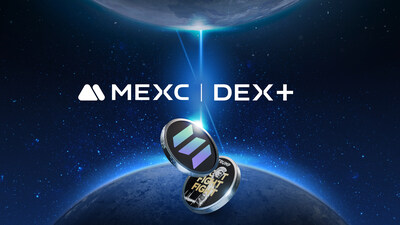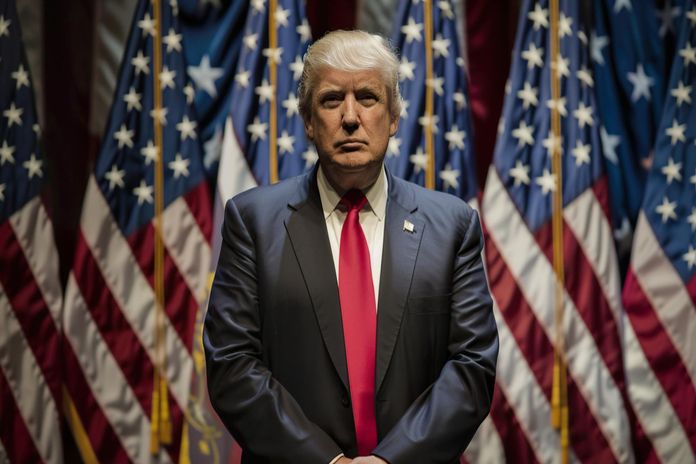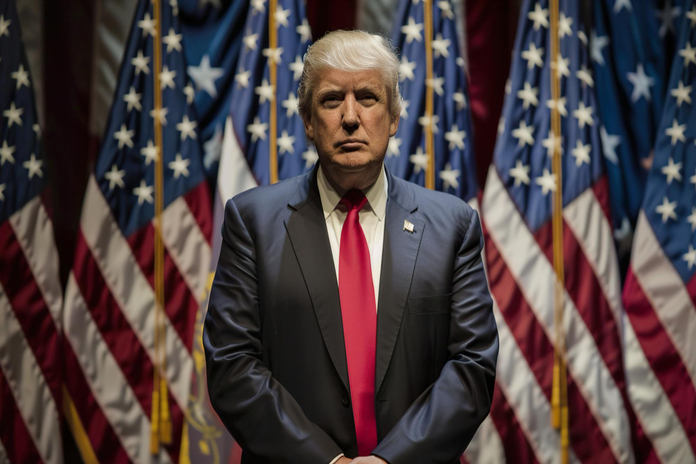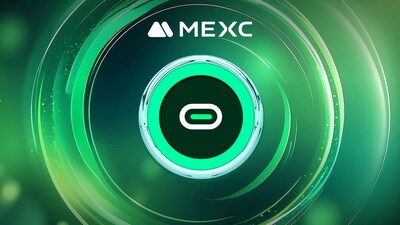Are Crypto and Stocks Moving in Lockstep in 2025?

The crypto and stock correlation has intensified in 2025, making it difficult to distinguish between the movements of digital currencies and traditional equities. Since Donald Trump returned to the White House, the S&P 500 is down over 4% year-to-date, while crypto’s global market cap has shed more than 20%. This downward trend suggests that both crypto and stocks are responding to similar economic and geopolitical pressures.
Once considered a safe haven from traditional financial markets, cryptocurrencies are now moving in tandem with Wall Street, reacting to headlines about tariffs, global trade tensions, and central bank policies. As crypto’s $2.86 trillion market cap experiences fluctuations, many investors wonder whether the once-independent digital asset class is now dancing to the same tune as equities.
Crypto and Stocks Responding to the Same Headlines
It’s becoming increasingly evident that crypto and stock correlation is no longer coincidental. Crypto traders are closely monitoring economic indicators, inflation data, and geopolitical developments—just like their Wall Street counterparts.
For instance, on March 10, 2025, when the S&P 500 plunged 2.7%, Bitcoin (BTC) followed suit, dropping below $77,000. Similarly, when global equities rebounded on March 17, the MSCI World Index and S&P 500 both jumped over 3% in two days. Although crypto remained slightly in the red, exchange-traded fund (ETF) net inflows increased by $149.2 million, according to Coingecko.
The correlation was further emphasized when Donald Trump announced reciprocal tariffs set to kick in on April 2. Equities gave back over 1% of their gains during the next trading session, while Bitcoin slipped below $82,000, mirroring the decline.
Trump’s Tariff Threats Shake Global Markets
President Donald Trump’s tariff policies are weighing heavily on both crypto and traditional markets. His announcement of 50% tariffs on Canadian steel and other proposed trade restrictions sent shockwaves through financial markets.
The Dow Jones Industrial Average (DJIA) dropped 0.83%, while the Nasdaq Composite Index shed 1.5%, signaling a potential correction that could linger for weeks. Crypto markets responded similarly, with Bitcoin’s price swinging dramatically, reflecting fears of prolonged economic uncertainty.
Even in Asia, China’s Hang Seng Index hit a three-year high, rising 23% in 2025, while Japan’s Nikkei gained 1.5%. Meanwhile, European markets remained steady, with the Stoxx 600 climbing 0.46%, reflecting optimism over Germany’s approval of increased government borrowing.
Crypto Market Caught in the Crossfire
The heightened crypto and stock correlation has crypto holders paying close attention to Trump’s policies and geopolitical developments. Market data suggests that crypto investors are becoming more like equity traders, reacting to inflation trends, retail sales, and global political shifts.
When Trump hinted at a possible ceasefire between Ukraine and Russia, equity markets briefly climbed, and Bitcoin followed the same upward trajectory. However, when negotiations stalled, both markets dipped once again, demonstrating the interconnectedness between these traditionally separate asset classes.
Fed’s Policy and Its Impact on Crypto and Stocks
The upcoming Federal Reserve (Fed) decision on interest rates adds another layer of uncertainty to both crypto and stocks. Currently, the Fed’s benchmark interest rate stands between 4.25% and 4.5%, and while a rate cut could stimulate economic activity, it also poses inflation risks.
Crypto markets, often seen as a hedge against inflation, may rally if rates remain unchanged or are reduced. Conversely, rising inflation could trigger a sell-off in both crypto and stocks. As Jerome Powell and the Fed deliberate their next move, crypto traders and stock investors alike are bracing for market volatility.
ETF Inflows Highlight Growing Institutional Interest
Amid the ongoing market turbulence, institutional investors have not shied away from crypto. Recent data from Coingecko revealed that ETF inflows surged by $149.2 million in a single day, reflecting renewed interest in digital assets despite the broader market downturn.
This uptick in ETF inflows suggests that institutional investors view crypto as a long-term bet, even as short-term volatility persists. However, with the Fed’s rate decision looming and Trump’s tariff policies creating uncertainty, both markets remain on edge.
Why Are Crypto and Stocks Moving Together?
The growing crypto and stock correlation can be attributed to several factors:
Institutional Adoption: As traditional financial institutions pour money into crypto, they treat it similarly to equities, increasing its sensitivity to macroeconomic trends.
Geopolitical Concerns: Global tensions, such as Trump’s tariff threats and the Ukraine-Russia conflict, impact risk sentiment across all asset classes.
Regulatory Uncertainty: Changes in US regulatory policies can create waves in both crypto and equity markets, as seen with the potential for stricter anti-money laundering rules affecting crypto platforms.
What Lies Ahead for Crypto and Stocks?
As 2025 unfolds, the relationship between crypto and stocks is expected to strengthen further. With Trump’s policies shaping market sentiment, the Fed’s rate decisions looming, and geopolitical uncertainties persisting, crypto and stock markets will likely continue to move in tandem.
Crypto’s evolution from a niche asset class to a mainstream investment option has brought it closer to traditional markets. While this correlation may unsettle investors seeking diversification, it underscores the growing maturity of the digital asset space.
Whether this trend persists or diverges depends on future policy decisions, global events, and investor sentiment. Until then, investors in both crypto and stocks should prepare for heightened volatility and stay attuned to macroeconomic signals that could shape their portfolios.
Featured Image: Freepik








